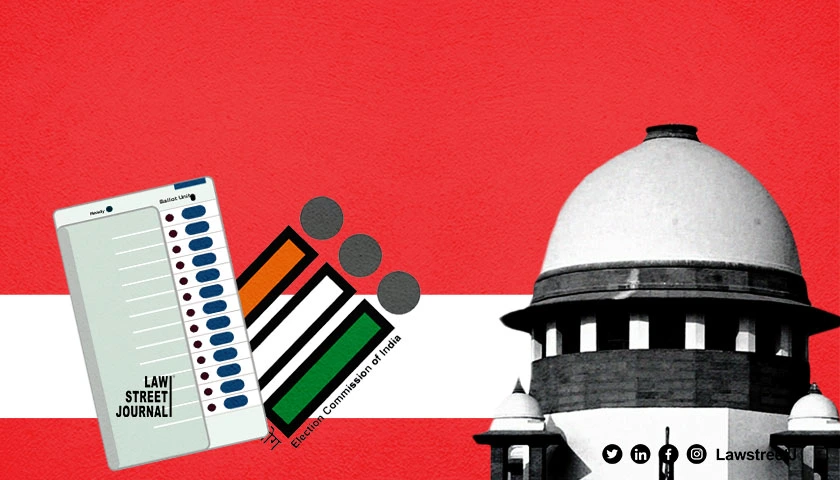NEW DELHI: The Supreme Court on Wednesday said it can't control election or be a controlling authority of another constitutional body, i e, Election Commission of India.
Reserving its judgement on a plea for 100% VVPAT counts, the apex court also said it can't act only on the basis of suspicion as not a single instance of mismatch between EVM and VVPAT data has been shown.
Also Read - SC seeks clarifications from EC on EVMs
A bench of Justices Sanjiv Khanna and Dipankar Datta posed a number of queries and sought answer from Deputy Election Commissioner Nitesh Kumar Vyas on a plea filed by NGO Association for Democratic Reforms for complete cross verification of EVMs counts with VVPAT slips.
The bench also said any candidate can show if there was any mismatch in the 5% VVPATs counted but so far not a single instance of mismatch has been found.
"Till date there has been no incident of hacking identified. If there is some incident, law provides what is to be done. We cannot control the election. We are not the controlling authority of another constitutional authority," the bench told advocate Prashant Bhushan, appearing for NGO ADR.
As senior advocate Santhosh Paul, also for a petitioner, claimed EVMs can also be rigged like a mobile phone.
The bench said it cannot issue mandamus on the basis of suspicion.
"Consequences exist if somebody does something wrong. If there is something to improve, we will do it. But your response is go back to ballot papers," the bench told advocate Bhushan.
Also Read - Supreme Court notice on plea to tally every EVM vote with VVPAT slips
The bench said the Supreme Court earlier intervened into the matter first in Subramanian Swamy case in 2013 by making it mandatory to use VVPATs and secondly by raising VVPAT count from one to five randomly selected machines in 2019.
Earlier, EC officer Vyas said control Unit, ballot unit, VVPAT, have their own microcontrollers and their own one-time programmes are burnt into the memory of the microcontrollers, which cannot be accessed physically. He also said after the polls, the EVMs are secured for 45 days as such a time period has been fixed for filing election petition.
During the hearing, as a counsel submitted the source code of EVMs are not disclosed, the bench said it should never be disclosed or it can be misused.
At the beginning, the court said it needs clarifications on certain aspects as there was some confusion over the answers given by the EC to 'frequently asked questions' (FAQs) about EVMs.
"We have some doubts and need clarification and that's why we have listed the matter for directions," the bench said, adding "we don't want to be factually wrong but doubly sure in our findings".
The court has kept the matter for Wednesday for issuing directions in the matter related to pleas for raising VVPAT (Voter Verifiable Paper Audit Trail) counts to 100 % with votes cast through Electronic Voting Machines during the elections.
On April 18, the EC had said that EVMs are standalone machines and they cannot be tampered with, and also the VVPAT cannot be tampered with.

















